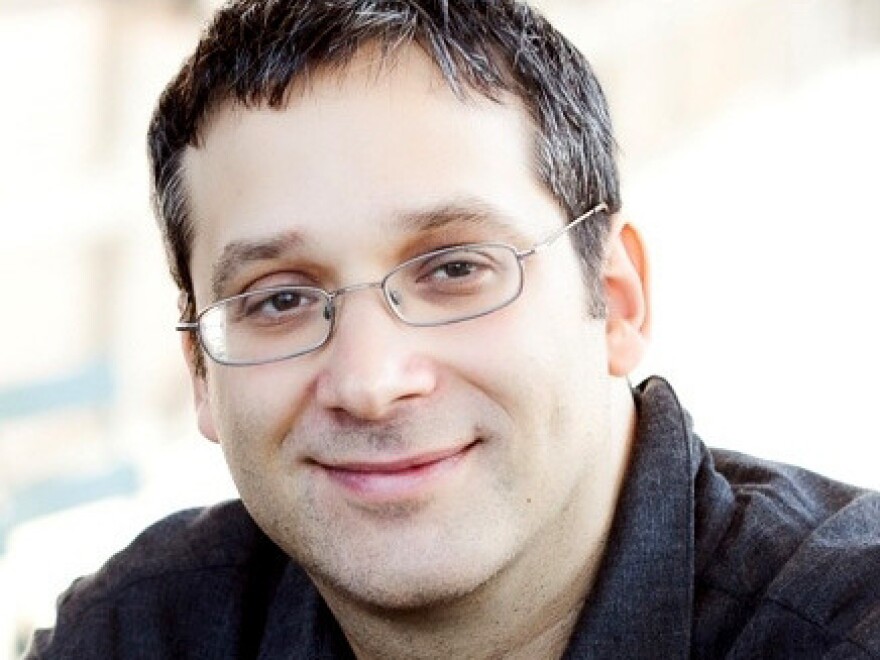They say you can't teach an old dog new tricks. But can you teach an old guitarist new licks? How about an old nonguitarist — not even a musician?
Gary Marcus isn't that old. He's actually in his early 40s, and he's a professor of psychology at NYU and an expert on cognitive development. Marcus decided to pick up the guitar to study musical learning, using himself as a guinea pig. His new book, Guitar Zero: The New Musician and the Science of Learning, documents that process. The title is an obvious homage to the video game Guitar Hero; Marcus says playing the game was what spurred him on to try playing music for real.
"I had a little bit of free time because I was actually on sabbatical," he tells NPR's Rachel Martin. "I was like, 'This is the moment. I'm really going to try now. I'm really going to commit myself.'"
Marcus studied language acquisition in graduate school. He says that for a long time, there was a generally accepted theory of "critical periods": the idea that if you don't learn a language early in life, you'll never be able to master it.

"We used to believe that that was the case — that if you didn't learn by the time you were 16, you'd never become fluent," Marcus says. "What we know now is that some adults actually do become fluent. And although it's definitely easier to learn some things when you're a kid, it's not the case that you just absolutely lose the ability later in life. There's more of a gradual decline, but it is still possible."
Marcus says he wasn't born with any sort of innate musicality, but that simply being an intelligent adult allows him to learn things about how music works that wouldn't be as accessible to a child (reading about music theory, for example). He admits, though, that the mechanics of the guitar presented some challenges to his grown-up brain.
"If you look at a piano, the notes are laid out in a very systematic way. You can always very easily find the C in whichever octave you're in. You can find the D the next note over, skipping a black note. It's very systematic," Marcus explains. "On a guitar, there's nothing that kind of highlights first of all what the natural notes are — the Cs, the Ds, as opposed to the C sharps and the D sharps. And then every string sets things up differently. We have a kind of memory that makes similar things hard to remember. So like, if you park in the same lot every day, your memories of that blur together and at the end of the day you can't remember exactly where you parked because you're confused with where you parked on other days."
The most profound lesson in how children and adults differ when learning music, Marcus says, came when he actually signed himself up for band camp. He traveled to his hometown of Baltimore and enrolled in a program called Day Jams, in which the participants — mostly children — have five days to put a song together and perform for a live audience. Marcus says his 11-year-old peers had an unlikely weapon on their side: patience.
"I think that kids have a lot more patience to do the same thing over and over again until they get it right. I think adults often push themselves to get the whole song on the first day," Marcus says. "Adults, they've heard the recordings many times, and they don't cut themselves the slack to take things incrementally. So I think there's a difference in strategy."

Some skills, like perfect pitch, do need to be learned early in life in order to sink in, Marcus says. But he maintains there is hope for nonmusical adults who would like to pick up an instrument — as long as they're willing to swallow their pride and practice hard.
"A lot of people just do what they're good at. They don't focus on what they're bad at," Marcus says. "In my case, I really had to focus on the rhythm. If I had just done what I was good at, I would still sound terrible. Now I don't quite sound terrible, and that's because I focused so much on that. So don't expect overnight success; try to enjoy each incremental bit of progress that you make."
Copyright 2023 NPR. To see more, visit https://www.npr.org.

